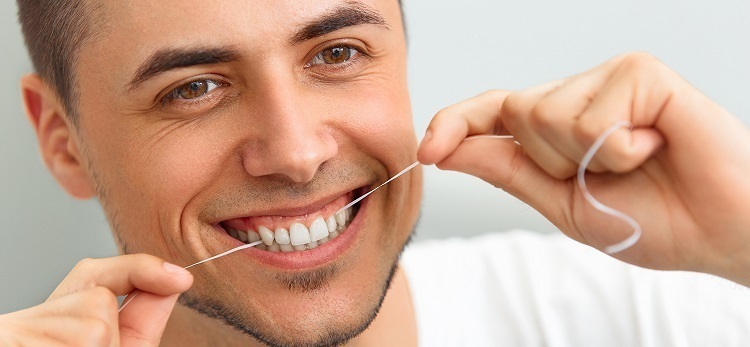Brushing or Flossing: Which Should Come First?
Everyone knows that in order to maintain oral hygiene, you must brush and floss. But, more and more individuals are now asking in what order should they carry out the activities – should they brush first or should they floss first! This may sound a tad pedantic, but studies have shown that the decision can have a significant impact on one’s teeth.
Keep Your Pearly Whites Clean
A large number of dental professionals from all across the globe conducted comprehensive research and found out that flossing before brushing is the best way to remove bacteria, plaque, and stubborn food particles from inside the mouth.
Wondering why? Well, flossing dislodges the debris stuck in between the teeth. You cannot get rid of these with your regular toothbrush because the bristles fail to penetrate the gaps between two teeth.
The organizations that said dental hygiene is categorised as part of general dentistry also specified that it is ideal to start your morning with flossing. You need to use floss approved by ADA.
Non-approved materials must be avoided under all circumstances since they shred easily and traps within the teeth. When flossing, please move the string down to reach the gum line and then gently pull from the right to the left, and vice versa.
The Other Advantages of Flossing Before Brushing
- Flossing decreases the amount of plaque you swallow. People do not often realize that plaque actually comprises bacteria, which can easily be digested and transported to other body parts. Swallowing excessive plaque can increase the chances of hypertension, heart disease, etc.
- Flossing before brushing can decrease your odds of getting gum disease. Gum disease could be defined as the infection of softer tissues that encompass the teeth and is triggered by plaque. When people brush before flossing, they push the food particles and the plaque deep into the gums unintentionally.
Do Not Neglect Brushing By The Way
Even though flossing is essential, and it must precede brushing, you cannot neglect your toothbrush altogether. The schools are constantly using social media to help kids learn things like this. Make sure you brush your teeth twice a day – once in the morning and once at night to prevent the bacteria from accumulating. The bacteria, when left to sit on the teeth at night, can form plaque, which eventually hardens and leads to tartar.
Most of people do not brush their teeth as long they should. Just like hand washing, there is a particular number that can keep the teeth cleanest – two minutes. Studies have shown that if someone brushes their teeth for two minutes, they will be able to remove about double the quantity of plaque than those who prefer the ten-second method. Be gentle with your teeth. If you are being aggressive, you have a high chance of eroding the enamel and injuring the gums that are made of sensitive tissues.
It may seem a bit astonishing to some, but rinsing with mouthwash right after brushing is not beneficial. You are washing away fluoride, which is the most essential component of toothpaste. Fluoride enhances oral health by reinforcing the enamel and making it resistant to cavities. It also alleviates the production of acids powered by the germs inside the mouth.
From the above discussion, it can be easily concluded that both brushing and flossing is necessary if you wish your teeth to look clean and fresh for a prolonged period. But, remember, floss first and brush second!

